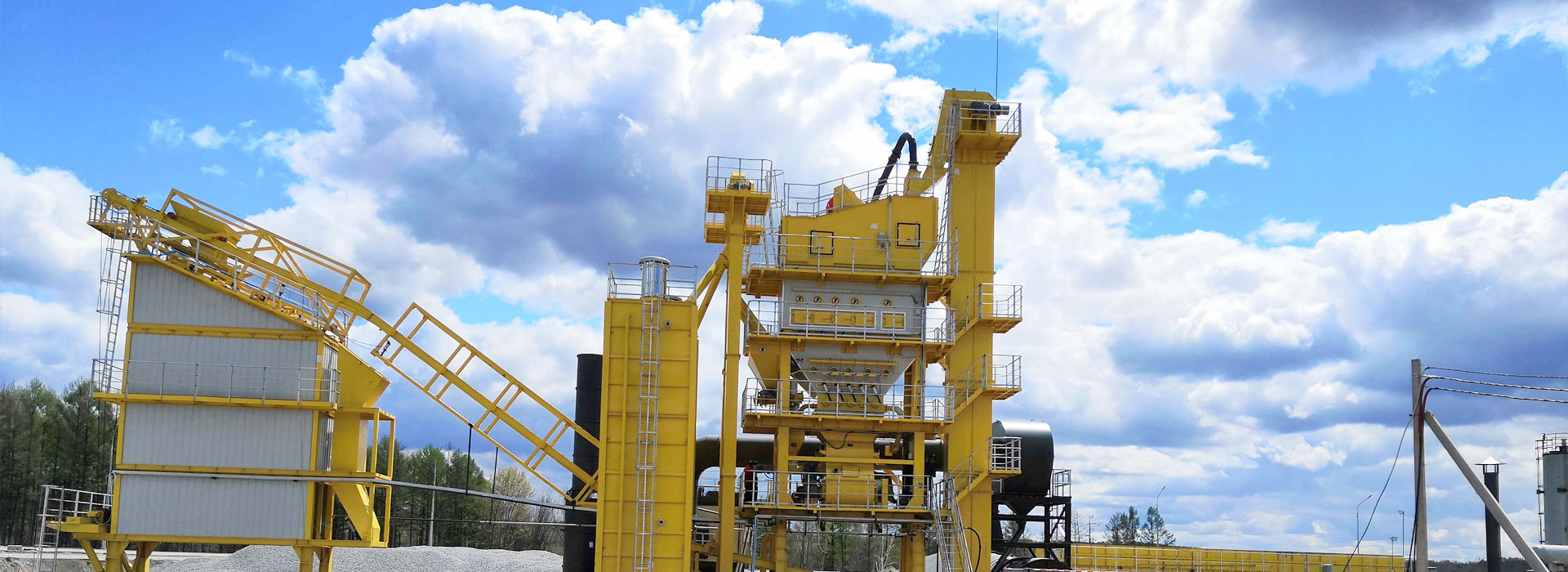 English
English Español
Español  Português
Português  русский
русский  Français
Français  日本語
日本語  Deutsch
Deutsch  tiếng Việt
tiếng Việt  Italiano
Italiano  Nederlands
Nederlands  ภาษาไทย
ภาษาไทย  Polski
Polski  한국어
한국어  Svenska
Svenska  magyar
magyar  Malay
Malay  বাংলা ভাষার
বাংলা ভাষার  Dansk
Dansk  Suomi
Suomi  हिन्दी
हिन्दी  Pilipino
Pilipino  Türkçe
Türkçe  Gaeilge
Gaeilge  العربية
العربية  Indonesia
Indonesia  Norsk
Norsk  تمل
تمل  český
český  ελληνικά
ελληνικά  український
український  Javanese
Javanese  فارسی
فارسی  தமிழ்
தமிழ்  తెలుగు
తెలుగు  नेपाली
नेपाली  Burmese
Burmese  български
български  ລາວ
ລາວ  Latine
Latine  Қазақша
Қазақша  Euskal
Euskal  Azərbaycan
Azərbaycan  Slovenský jazyk
Slovenský jazyk  Македонски
Македонски  Lietuvos
Lietuvos  Eesti Keel
Eesti Keel  Română
Română  Slovenski
Slovenski  मराठी
मराठी  Srpski језик
Srpski језик
What are the benefits of a 340TPH Stationary Asphalt Mixing Plant?
2024-10-14

What are the components of a 340TPH Stationary Asphalt Mixing Plant?
A 340TPH Stationary Asphalt Mixing Plant is made up of several components that work together to produce high-quality asphalt. These components include:
- Cold Aggregate Feeders: These feeders are used to deliver the aggregates to the drying drum. They are designed to ensure that the aggregates are evenly distributed.
- Drying drum: This drum is used to dry the aggregates before mixing them with bitumen. It is designed to ensure that the aggregates are not over-dried.
- Bitumen Tank: This tank stores bitumen, which is a binding agent used to hold the aggregates together. The tank is designed to ensure that the bitumen is kept at the right temperature.
- Mixing Tower: This is the main component of the plant where the aggregates and bitumen are mixed. The tower is designed to ensure that the mixture is of the right consistency and temperature.
- Burner: This component is used to heat the aggregates in the drying drum and to keep the bitumen in the tank at the right temperature.
What are the advantages of a 340TPH Stationary Asphalt Mixing Plant?
There are several advantages of using a 340TPH Stationary Asphalt Mixing Plant for your construction project. These include:
- High Output: The plant has a high production capacity of up to 340 tons per hour, which means that it can handle large construction projects.
- Durable: The plant is made up of high-quality materials that are designed to withstand harsh weather conditions and heavy use.
- Low Maintenance: The plant has a low level of maintenance, which means that you can save money on repairs and upkeep.
- Environmentally Friendly: The plant has a recycling system that helps to minimize waste and reduce the impact on the environment.
- Cost-Effective: The plant is cost-effective because it has a low level of maintenance and it produces high-quality asphalt that reduces the need for frequent repairs.
How to maintain a 340TPH Stationary Asphalt Mixing Plant?
Maintaining a 340TPH Stationary Asphalt Mixing Plant is essential to ensure that it continues to function at an optimum level. Some maintenance tips include:
- Clean the Plant: Regularly clean the plant to remove any dirt or debris that may accumulate. This helps to prevent rust and corrosion.
- Lubricate the Components: Lubricate all moving parts regularly to reduce friction and wear and tear.
- Check the Electrical Connections: Check the electrical connections regularly to ensure that they are secure and working properly.
- Inspect the Filters: Inspect the filters regularly to ensure that they are clean and functioning properly.
- Check the Burner: Check the burner regularly to ensure that it is working properly and delivering the right amount of heat.
Conclusion
The 340TPH Stationary Asphalt Mixing Plant is an essential tool for any construction project that requires large quantities of asphalt. It has many advantages, including high output, durability, low maintenance, and environmental friendliness. Proper maintenance of the plant is essential to ensure that it functions at an optimum level and delivers high-quality asphalt. By investing in a 340TPH Stationary Asphalt Mixing Plant, you can ensure that your construction project is completed quickly, efficiently, and cost-effectively.
WUXI XUETAO GROUP CO., LTD is a leading manufacturer of asphalt plants and related equipment. Our products are of high quality and are designed to meet the needs of our customers. If you would like to know more about our products, please visit our website: https://www.cxtcmasphaltplant.com. You can also contact us at webmaster@wxxuetao.com.
References:
1. Huang, H., & Wang, Y. (2020). Research on the performance of modified asphalt mixture based on asphalt mixture theory. Journal of Materials Research and Technology, 9(6), 12990-13003.
2. Li, H., Wang, H., & Liu, H. (2018). Research on the anti-aging properties of crumb rubber asphalt mixture. Construction and Building Materials, 168, 719-727.
3. Yang, X., Li, Y., & Wang, J. (2019). Effects of organic montmorillonite on the performance of asphalt binder. Road Materials and Pavement Design, 20(sup1), 145-164.
4. Zhang, J., Wang, Y., & Zheng, J. (2020). Performance evaluation of high-modulus asphalt mixture under different loading conditions. Advances in Civil Engineering Materials, 9(3), 599-610.
5. Zhang, L., Li, H., & Liu, H. (2019). Analysis of pavement performance based on asphalt mixture theory: a case study. International Journal of Pavement Research and Technology, 12(8), 825-835.
6. Zhao, Y., Liu, G., & Zhang, Q. (2018). Optimization of asphalt pavement structure based on anti-cracking performance. Journal of Cleaner Production, 182, 838-846.
7. Lu, K., Jiang, H., & Xiao, Y. (2019). Effect of recycled plastic on the performance of asphalt mixture. Construction and Building Materials, 228, 116753.
8. Meng, J., Tang, S., & Wu, S. (2020). Evaluation on the performance of asphalt mixture using a modified fatigue cracking model. Journal of Materials Research and Technology, 9(5), 10283-10299.
9. Shi, X., Wu, S., & Meng, J. (2018). Investigation of the high-temperature performance of asphalt mixture containing a waste mixture additive. Journal of Cleaner Production, 194, 171-180.
10. Wang, L., Li, J., & Chen, H. (2019). Laboratory investigation of the mechanical properties of a warm-mix asphalt mixture containing waste plastic. Construction and Building Materials, 206, 625-632.




